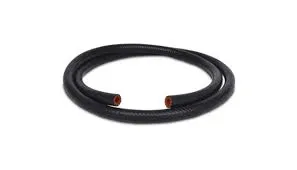Bulk Fuel Hose Applications and Benefits for Efficient Fuel Transfer Systems
Dec . 11, 2024 04:27 Back to list
Bulk Fuel Hose Applications and Benefits for Efficient Fuel Transfer Systems
The Importance of Bulk Fuel Hose in Modern Fuel Distribution Systems
In the realm of industrial fuel distribution, the importance of using the right components cannot be overstated. Among these components, the bulk fuel hose stands out as a critical element that ensures efficiency, safety, and reliability in the transportation of fuels. This article explores the significance of bulk fuel hoses, their characteristics, applications, and best practices for maintenance and selection.
Understanding Bulk Fuel Hoses
Bulk fuel hoses are specialized hoses designed to transport various types of fuels, including gasoline, diesel, biofuels, and other petroleum products. They are typically constructed from durable materials such as rubber, thermoplastic elastomers, or reinforced composites to withstand the rigorous conditions of fuel handling. The design and manufacturing of these hoses comply with strict industry standards, ensuring they are capable of enduring high pressures and temperatures without degrading.
One of the primary features of bulk fuel hoses is their ability to resist the corrosive effects of fuels, which can vary significantly in composition and temperature. Furthermore, many hoses are designed to be flexible, allowing for easier maneuverability during installation and use. Additionally, some hoses are equipped with anti-static properties to mitigate the risk of electricity buildup, which could lead to dangerous sparks or fires.
Applications of Bulk Fuel Hoses
Bulk fuel hoses are used in a wide range of applications, making them indispensable in the fuel distribution industry. They are commonly employed at fuel terminals, refineries, distribution centers, and at fueling stations. The efficient transfer of fuel from trucks, railcars, or storage tanks to delivery points relies heavily on the performance of these hoses.
Moreover, bulk fuel hoses are utilized in the aviation sector for handling fuels such as Jet A and Avgas
. The aviation industry demands high standards for safety and performance, and the use of reliable bulk fuel hoses ensures that these critical operations can be carried out without compromising safety.bulk fuel hose

Selecting the Right Bulk Fuel Hose
Choosing the right bulk fuel hose is essential for optimizing performance and safety. Key factors to consider include the type of fuel being transported, operating pressure requirements, temperature conditions, and the compatibility of the materials used in the hose construction. It is crucial to ensure that the hose material can withstand the specific type of fuel while providing adequate resistance to abrasion and external environmental factors.
Consulting with manufacturers or industry experts can provide valuable insights when selecting hoses. It is also essential to review certifications and standards such as those from the American Petroleum Institute (API) or Underwriters Laboratories (UL), which signify compliance with industry regulations.
Maintenance and Safety Considerations
Regular maintenance and inspection of bulk fuel hoses are vital to ensure their longevity and safety. Operators should conduct routine checks for signs of wear, kinks, or leaks, as any defect could lead to significant operational hazards. Additionally, keeping the hoses clean and free from contaminants can help prevent degradation and maintain their efficiency.
Proper training for personnel handling bulk fuel hoses is essential in promoting safety. Operators should be educated on the correct procedures for connecting, disconnecting, and using these hoses as well as emergency protocols in case of a spill or leak.
Conclusion
In conclusion, bulk fuel hoses play a crucial role in the safe and effective distribution of fuel in various industries. Understanding their characteristics, applications, and the importance of proper selection and maintenance can significantly enhance operational efficiency. By prioritizing quality and adhering to industry standards, businesses can ensure that their fuel transportation systems remain reliable and safe, thereby reducing risks and improving overall performance. With the right knowledge and practices, stakeholders can leverage the benefits of bulk fuel hoses in today's dynamic fuel distribution landscape.
